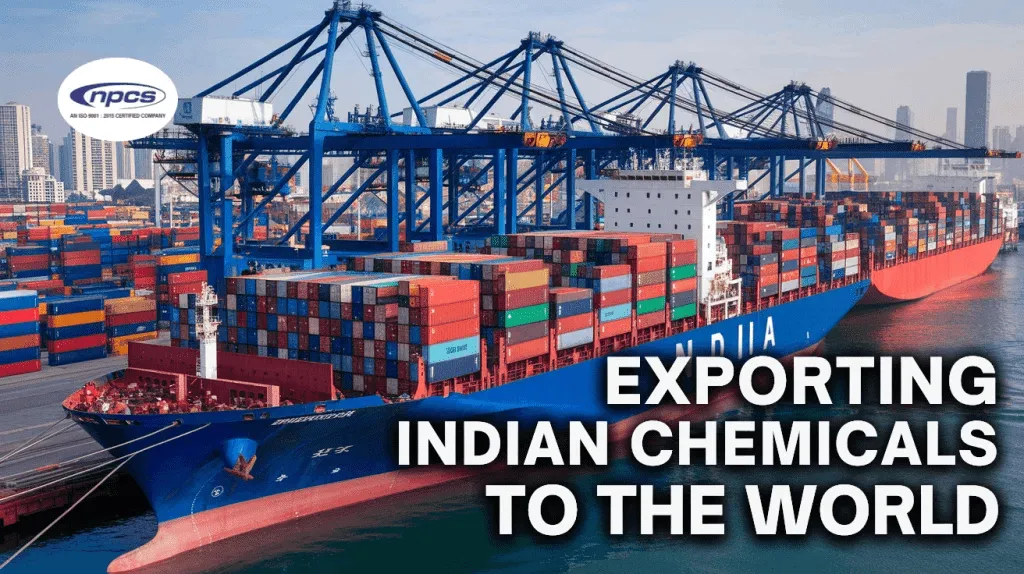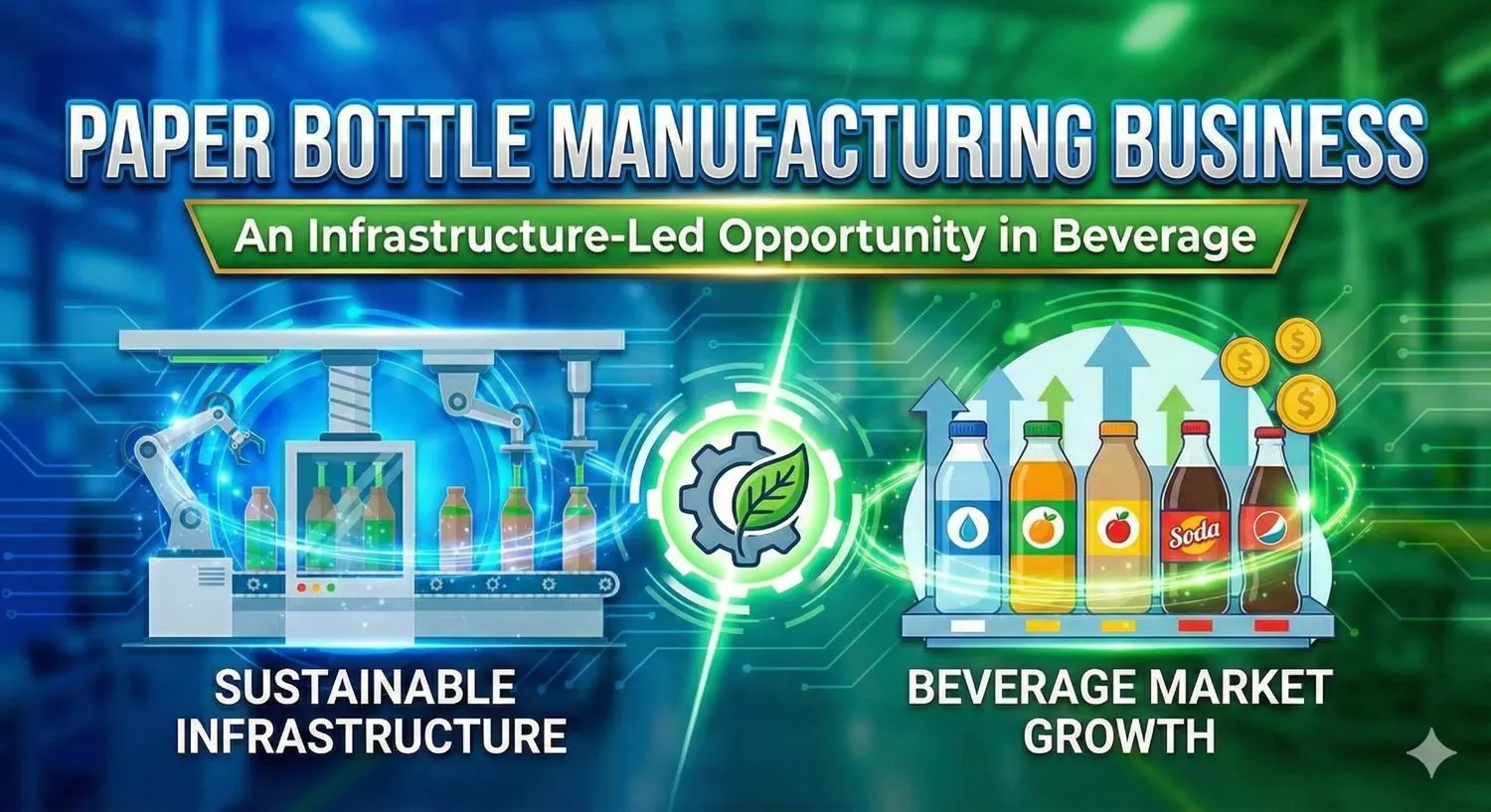The Indian chemical industry is among the largest in the world. It claims to control a major market share of the world market, considering it reached a market value of over 200 billion US dollars in the year 2024. Export competence is diverse in India due to the countrys strong production of chemicals and a favourable market destination. The industry targets volume chemicals, performance chemicals, and crop chemicals. For HSBC to obtain optimum benefits, however, it is imperative that it aims strategically and manages certain issues.
Exporting chemicals is an important and crucial process to expand the economy of India on an international platform. From retail products such as chemicals and petrochemicals, and others such as caustic soda, the sector is strategic. Barriers exist because solutions are yet to be found to create more opportunities to capitalise on the strengths, thus ensuring the consummation of the demand for chemicals in the global market is met by India.
Also Read
Contents
Current Landscape of the Indian Chemical Industry
The chemical industry of India is exceptionally segregated and manufactures more than eighty thousand products. Chemicals, petrochemicals, caustic soda, and speciality chemicals are part of it. Key drivers of growth include:
- Increasing Demand: The demand for chemicals is increasing across the international market because of growing demand from the Indian market, due to the competitive pricing and quality of chemicals.
- Automatic Route for FDI: Foreign investment up to 100% is permissible under the automatic approval route, increasing the foreign investments.
- Manufacturing Hubs: Companies from the states of Gujarat, Maharashtra, and Tamil Nadu dominate export-orientated industries.
- Raw Materials Availability: Crude oil and natural gas are critical for continued growth of most economies throughout the world.
- Export-Orientated Units: Several chemical industries have export orientation; therefore, India has better exposure in the international market.
The chemical industry in India will have a growth rate of 9.3% through the middle of this year, 2025, and is considered one of the countrys important sectors, according to the India Brand Equity Foundation report.
Strategies for Exporting Indian Chemicals
Enhancing Domestic Production
Essentially, there is a need to enhance domestic production in order to satisfy the local and global market. Indian chemical manufacturers should focus on:
- Constructing complex and modern plants for chemical production.
- A better adoption of proper technology to improve on the existing processes.
- As an organisational strategy to boost quality and also compliance with international standards.
- Increasing physical and product capabilities in commoditised sectors like large and medium chemical industries.
Strengthening Supply Chains
Sustainable supply chains are key to global business. Key strategies include:
- Development of investment in port and logistics as an asset type.
- Applying digital technologies in terms of monitoring and improving performance.
- Stakeholder management, which includes having enough contracts with suppliers for the replenishment of raw material.
- Pioneering appropriate distribution channels for reaching out to the distant and unconventional markets.
Targeting Speciality Chemicals
The speciality chemicals sector provides higher returns on investment and possesses specific uses. Indian firms should:
- Make R&D investments in creating high-value-add products.
- Concentration on high-value markets and achieving quality certifications.
- Formulate unique products based on the requirements of a certain client.
- Be consistent and accurate in the production process and develop a positive reputation around that.
Sustainable Practices
Sustainability cannot be overemphasised in international chemical business. Indian manufacturers should:
- Sustain green chemistry to reduce environmental nuisances.
- You need to incorporate ESG (Environmental Social Governance) compliant solutions.
- The chemical production should be done using renewable energy.
- People should practice on the circular economy; for instance, waste recycling should be encouraged.
Market Diversification
 This implies that diversification of export markets minimises risks and expands the coverage. Exporters should focus on:
- Investing in future markets in Africa, Southeast Asia, Latin America, etc.
- Enhanced cooperation in trade relations works with Europe and North America.
- It will be through participating in international trade expos to display potential for investment.
Challenges in Exporting Indian Chemicals
Regulatory Compliance
Global chemical markets have stringent regulatory requirements like the REACH regulation from Europe and TSCA from the USA. According to the study, there are challenges that Indian exporters face in regard to compliance requirements. Some of the communication barriers that may be incurred include certification, and the audit costs might be expensive. Fresh employees are particularly challenging to train regarding safe working practices.Â
Our Books
- Modern Technology of Petroleum, Greases, Lubricants & Petro
- Detailed Project Profiles On 9 Selected Chemical Industries (2nd Edition)
Raw Material Dependency
An essential fact that has been well established in integrating the research study in an understanding of the chemical industry in India is that of the sectors dependence on imports of certain chemical raw materials. This dependency results in high expenses since the prices of components fluctuate continuously. At the same time, it hampers structural expansiveness, at least for some Indian chemical segments. That is why the reliance on the external sources is not very effective when it comes to operation expansion.
Lack of Advanced R&D
India is a hub for producing large-volume chemicals; however, speciality chemicals are an area where it does not bring out much differentiation. The lack of adequate funds investment that regional pharmaceutical industries dedicate to R&D means they cannot satisfy the markets small niches. It is crucial for the company to concentrate on highly sophisticated research for itself as well as for other companies because only in this way is it possible to create new formulas and technologies. Then why will innovation be helpful in maintaining India’s competitiveness in the global market?
Systems Constraints
Delays occur due to congestion in ports; stocks and resources; transport; and handling increase costs. These bottlenecks negatively affect competitiveness and erode the reputation of India as a reliable supplier into world markets. This means that the structural capacity of the country hinders its capacity to counter-match the international demand within a convenient timeframe.
Competition from China
China has become a market giant in Indian chemicals because it has enormous production capacities and lower production costs. Indian exporters need to create that distinction by championing quality and sustainability. New product differentiation; assembling, strategic branding, and organisational efficiency that are significant for competing with China.
Our Project Reports
Case Study: Growth of Agrochemicals
Many top manufacturers have secured this market, especially in Asia and Africa, due to the provision of affordable and unique solutions. There are various challenges, such as raw material dependence, but with the help of government encouragement and well-established supply chains, organisations have been able to be in the global market.
Also, some Indian companies dealing in agrochemicals are developing environmentally friendly pesticides and fertilisers, which is a big issue around the world in efforts to reduce environmental pollution while at the same time promoting greater crop productivity. The sector demonstrates that when production targets are in harmony with global requirements, the export increases dramatically.
Also Read
Way Forward: Recommendations
To ensure sustained growth in exports, the Indian chemical industry must:
- Leverage Government Initiatives: Continued on Production Linked Incentive (PLI) type schemes will incentivise manufacturing investment.
- Invest in R&D: Improvement of the competency in the development of speciality chemicals will create export opportunities.
- Focus on Branding: Strategising the Make in India logo benefit can enhance incremental visibility as well as credibility in world markets. Most often, branding campaigns can create the perception of India as a preferred destination for good quality Indian chemical production.
- Adopt Digitalisation: The modern approaches, such as smart manufacturing and the use of artificial intelligence, can be used to cut costs and enhance the performance of manufacturing companies. Digitalisation also provides control and accountability of various supply chains.
- Partner with Experts: Some of the institutions that offer important information that can assist the chemical manufacturers to go international are the National Institute of Industrial Research (NIIR).
Conclusion
The chemical industry in India has a great opportunity to become world-class. If the current problems, like increased regulatory policies, dependence on raw materials, and infrastructure constraints, are well managed and solved, then the export level of India can improve greatly. Innovation, sustainability, and strategic partnerships can create a roadmap for the Indian chemical industry to compete effectively in the international market.
The export of Indian chemicals is both an economic compulsion and a demonstration of Indias efficiency in providing value service delivery in the global market. Take full advantage of our vast library of industry reports, feasibility reports, and market reports on being a part of NIIR and changing your strategy to open new possibilities to grow in any part of the world.
Contact Us
Frequently Asked Question
What are the key strategies for exporting Indian chemicals globally?
Successful strategies include enhancing domestic production capacity with modern plants and technology, strengthening supply chains, targeting high-value speciality chemicals through R&D and quality certifications, adopting sustainable practices, and diversifying export markets into Africa, Southeast Asia, and Latin America.
What major challenges do Indian chemical exporters face?
Exporters encounter stringent global regulatory compliance like REACH (EU) and TSCA (US), dependency on imported raw materials with volatile costs, limited advanced R&D for differentiated products, infrastructure bottlenecks in logistics and ports, and stiff competition from large producers such as China.
Why is regulatory compliance important for chemical exports?
Meeting international safety and environmental standards is crucial because non-compliance can restrict access to regulated markets, increase certification costs, and delay shipments.
How can Indian chemical companies improve competitiveness in global markets?















